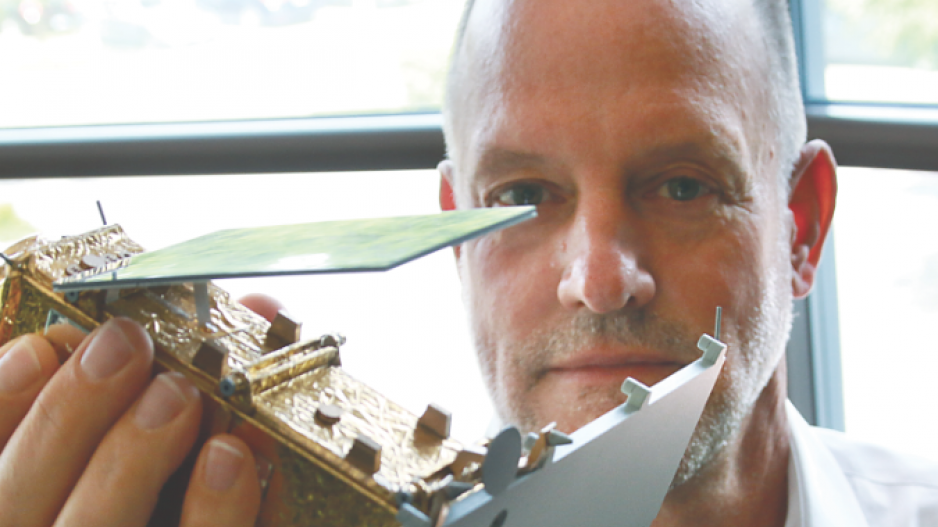Don Osborne is a fan of aerospace.
He’s just not so much a fan of flying.
“I absolutely hate getting on planes,” said the president of MacDonald Dettwiler and Associates’ (MDA) information systems group. “When I was young before I had a family … getting on a plane and going some strange place I hadn’t been before was cool and exciting.”
The novelty has worn off.
Nowadays the head of MDA’s Canadian operations prefers the comforts of boating near his home in Tsawwassen or taking to the ski hills just outside the city.
Notwithstanding his aversion to slogging through security lineups and watching flight crews demonstrate safety procedures, Osborne has a passion for the aerospace industry that was fuelled early in life by his father, an executive at Spar Aerospace. Every night at the dinner table while growing up in Montreal, Osborne would listen to his dad regale the family with stories about the satellites and other projects his team at Spar was dreaming up.
“Those were the days as an engineer, when you talked about working in the space industry, [Spar] was the place to go if you could manage your way in, unlike today where everyone wants to go work in Silicon Valley,” he said.
He got his foot in the door working summers as a draftsman in the early 1980s while studying mechanical engineering at McGill University.
The dream job at Spar he envisioned during his childhood became reality soon after graduation. But the young engineer found himself in an awkward position trying to make a career out of it.
“I recognized pretty quickly that I was going to be a relatively average engineer in a pool of extremely talented engineers,” he said, adding with a chuckle that his father’s role may have played a part in him ending up at Spar.
“At the same time when I was hanging out with the engineers, all they could do was criticize management, so I decided to go back to school and get an MBA.”
After earning another degree from McGill, Osborne landed a role managing a manufacturing engineering team of eight people at Spar.
“I wouldn’t say it was a seamless transition [into management] but it was relatively easy,” he said. “I was lucky. It was an assignment I was passionate about.”
After a series of mergers, acquisitions and stops at different aerospace firms throughout the 1990s and 2000s, Osborne began running MDA’s Montreal operations in 2009.
He, his wife and their two children eventually relocated to MDA’s head office on the West Coast, where Osborne now oversees the managers in charge of the Vancouver, Montreal and Toronto offices.
Day-to-day duties mean he’s in constant contact with those managers, helping to coach them through projects that in many cases have never been attempted before.
Fulfilling clients’ requests for unprecedented products can be a high-pressure process, he said.
“This is a complicated business and there’s always some projects which unfortunately are going sideways at any point in time. So there’s risk in execution of those types of things. Sometimes we do it very well – most of the time we do – and sometimes, unfortunately, not so much.”
Osborne said the work often causes him to reflect on challenges he faced in his career during the 1990s, when a massive consolidation took hold of satellite-makers across the globe.
After a Mexican company competing with Spar for a satellite contract was acquired by a U.S. automobile giant, the car company began promising to throw an auto-assembly plant into the deal.
That’s when Osborne said he and his team and Spar began to realize they could no longer compete as a prime contractor in the satellite business.
“We needed to move down the food chain in order to be successful in the long term,” he said. “Competing at the level we were at was just a recipe for inevitable death.”
But the move to transform Spar from a prime contractor into a component and subsystems supplier was one of the toughest decisions Osborne was a part of.
When he announced the change to Spar’s employees, “you could hear a pin drop in the cafeteria,” he recalled, adding that many of the workers left the company soon after.
“But I’m absolutely positive that business today is alive and well and thriving because [of] the decisions we made back then,” he said.




